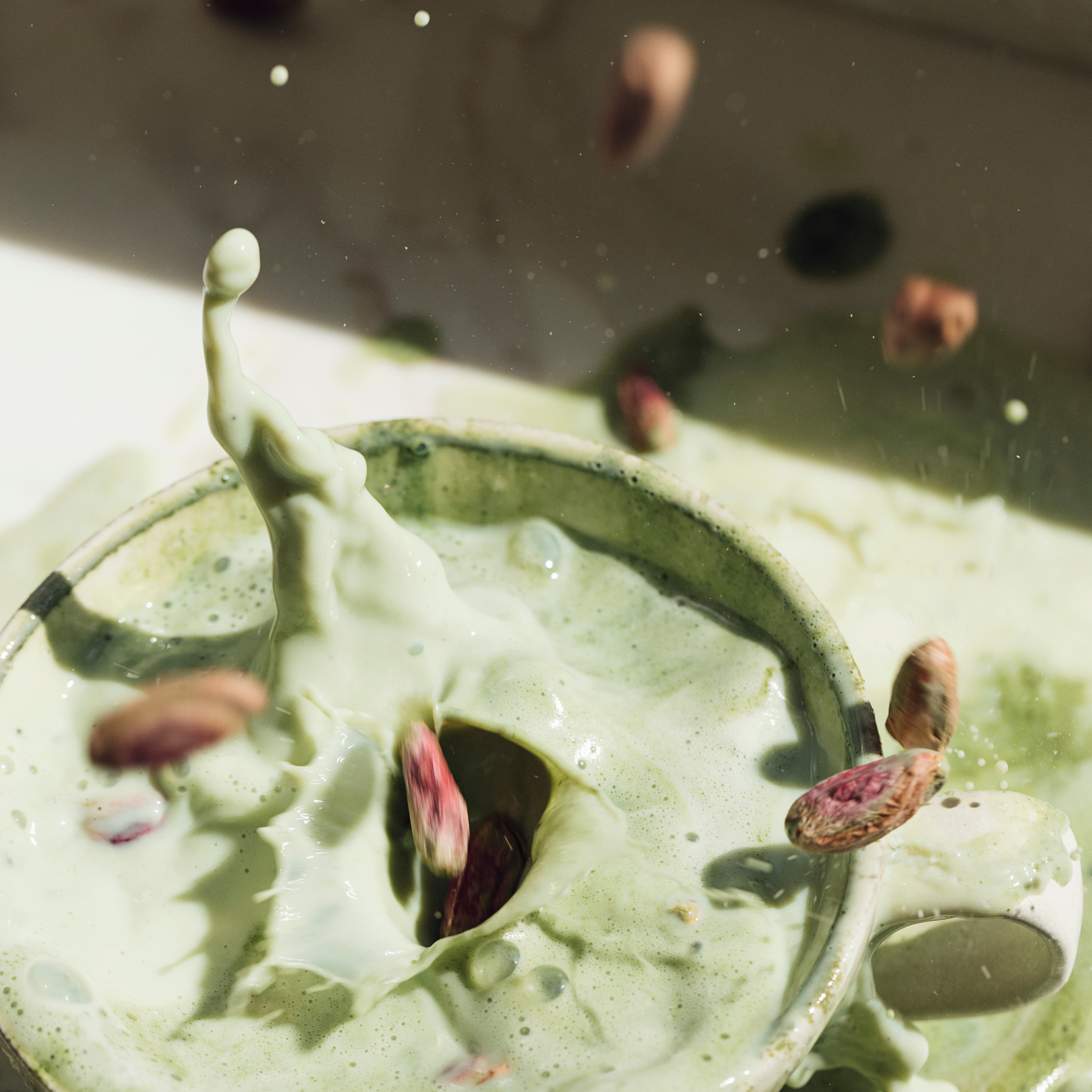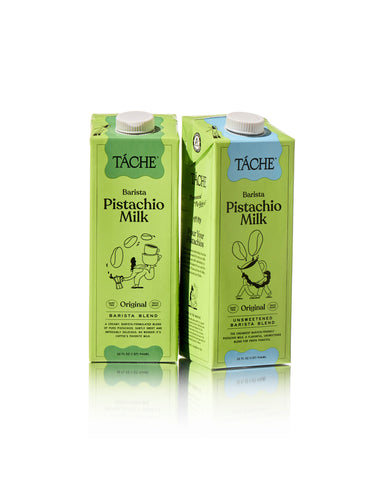Botany, Desserts, & the History of Pistachios
Pistachios have been around for a while. And we mean a while (they’ve been discovered in digs dating all the way back to 6750 BC). Originally native to Turkey, Iran, Syria, and Lebanon, pistachios were so loved by the Queen of Sheba that she decreed them a royal food. And can we blame her? Mostly regarded as a delicacy rather than a snack, pistachios were most commonly used in desserts (baklava, anyone?) and crushed up to thicken and season sauces.
In fact, it wasn’t until they were imported to America in the 1880s that pistachios began to be used as an everyday snack. An American botanist joined an expedition to Iran to gather pistachio seeds in hopes of bringing them back to America. After returning with about 20 pounds of the nut, he planted a farm in California’s Central Valley. Pistachio trees, however, mature at a slower rate than most other trees, so it was about seven years before any nuts were grown in the United States.
Cultivating Green Gold
Pistachios grow quite differently than other nuts—they’re not even technically true nuts! Grown on one of the oldest flowering nut trees, pistachios are actually part of the cashew family. Native to hot environments, pistachio trees require scorching summers and very little water to grow successfully—making them much more environmentally friendly. In fact, according to research by UNESCO, while it requires about 97 gallons of water to grow 1 ounce of almonds, it requires about 75% less water to produce the exact same amount of pistachios.
Once planted, watered, and tended to, pistachios will grow in grape-like clusters on their tree. While the tree can grow up to 30 feet tall, pistachios ripen slowly through the summer months. Their typical green color slowly turns to a reddish brown, and their shells pop open with a distinct cracking sound historically thought to be an excellent romantic omen. Couples would meet under pistachio trees and wait to hear their pop to ensure a strong, happy relationship.
Pistachio Benefits Make Life a Táche Better
Okay, so we’ve talked about the history of the pistachio, but what about their taste? At Táche, we source our pistachios for their rich flavor profile. A little nutty and a little sweet for that light creaminess, we’re committed to bottling and delivering the best flavor to accompany anything, or be delicious on its own.
An incredible source of protein,
pistachios contain more antioxidants than nearly any other nut. More importantly, they contain vitamins that
protect your eyes from blue light damage caused by screens. Let’s face it, we all need a little help combatting the daily scroll through our feeds. High in fiber and essential amino acids,
pistachios aid gut health. And since they’re the lowest calorie nut, pistachios are a fantastic choice for alt-milk (if we say so ourselves).
For the Love of Pistachios
But the history of pistachios doesn’t stop there. Táche was born from rich beginnings to flavor your days with indulgent nutrients. We source our pistachios carefully and craft our cartons with care, all so that you can lose yourself in the enjoyment of every sip, gulp, and satisfied sigh.
Thirsty for more? There’s much more where that came from. Learn
how Táche compares to other alt-milks (hint: it checks all the boxes) or simply
fill up your cup with everything from Original to Vanilla, Unsweetened, to Lightly Sweet Vanilla.









